 Request a FREE Sample of our FcRn Binding Kit!
Request a FREE Sample of our FcRn Binding Kit! Request a FREE Sample of our FcRn Binding Kit!
Request a FREE Sample of our FcRn Binding Kit!
 Limited Edition Golden Llama is here! Check out how you can get one.
Limited Edition Golden Llama is here! Check out how you can get one.  Limited Edition Golden Llama is here! Check out how you can get one.
Limited Edition Golden Llama is here! Check out how you can get one.
 Request a FREE sample of our GMP products!
Request a FREE sample of our GMP products!  Request a FREE sample of our GMP products!
Request a FREE sample of our GMP products!
> Cytokines for Organoid Culture 
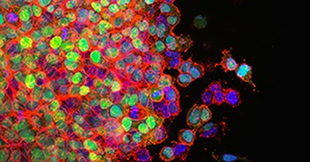
![]() Sterile
Sterile
![]() Animal-origin Free
Animal-origin Free
![]() High Purity≥95%
High Purity≥95%
![]() High Bioactivity Verified by Organoid Models
High Bioactivity Verified by Organoid Models
![]() Low Endotoxin≤0.1 EU/μg
Low Endotoxin≤0.1 EU/μg
![]() Carrier Free
Carrier Free
![]() Similar to Natural Conformation and Modifications
Similar to Natural Conformation and Modifications
![]() Consistent between Batches
Consistent between Batches
Gastric organoid
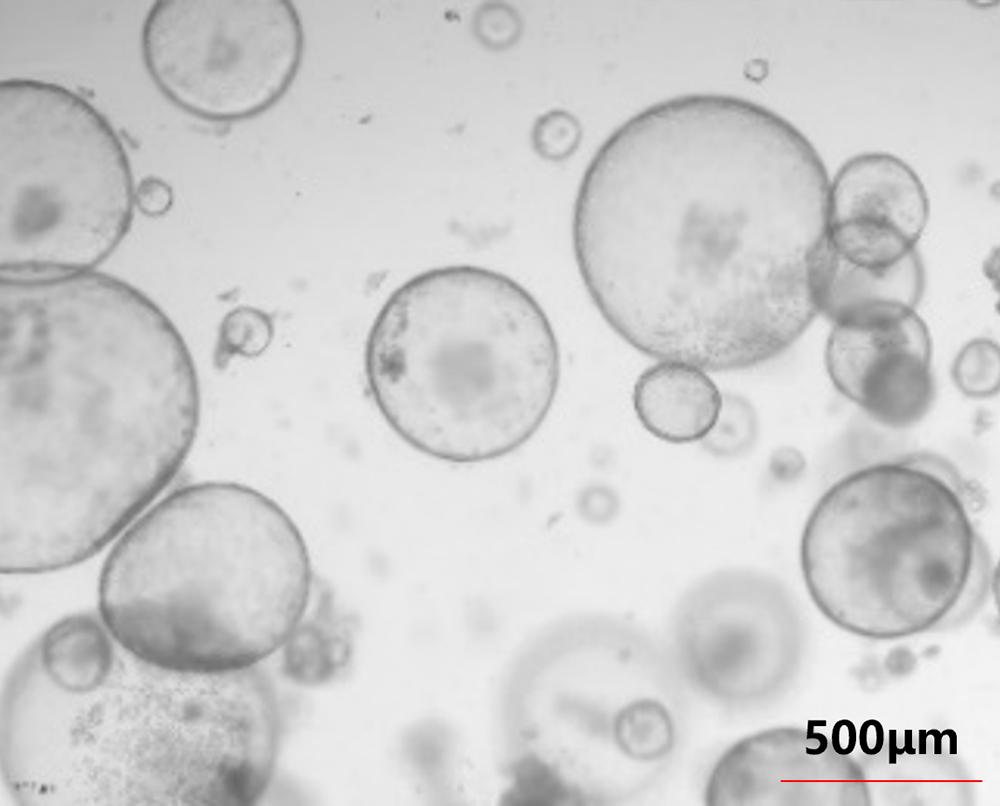
Human EGF (Cat. No. EGF-H52H3), Noggin (Cat. No. NON-H5257), R-spondin1 (Cat. No. RS6-H4220), FGF10 (Cat. No. FG0-H5145) actively support gastric organoid growth during multiple passages and long-term culture processes.
Liver ductal organoid
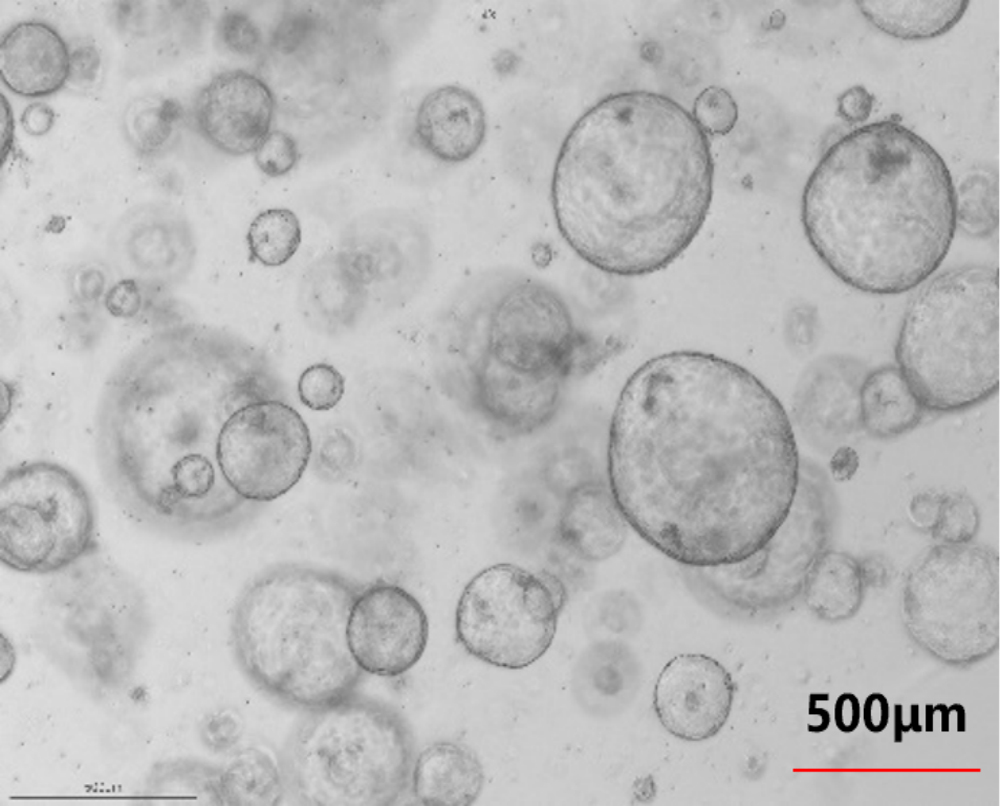
Human EGF (Cat. No. EGF-H52H3), Noggin (Cat. No. NON-H5257), R-spondin1 (Cat. No. RS6-H4220), FGF7 (Cat. No. FG7-H52H5), FGF10 (Cat. No. FG0-H5145), HGF (Cat. No. HGF-H52H3) actively support liver ductal organoid growth.
Brain organoids
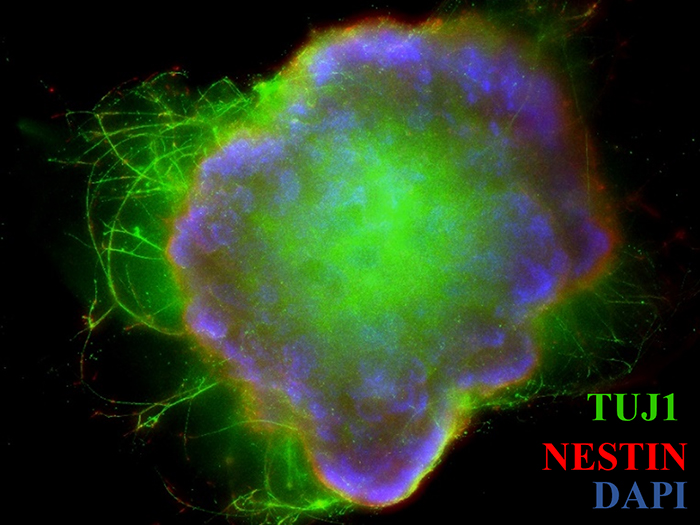
BDNF (Cat. No. BDF-H5219), GDNF (Cat. No. GDF-H5219) support iPSC derived human brain organoids formation, expressing neuron marker TUJ1 (green) and neuron stem cell marker NESTIN (red).
Blood vessel organoids
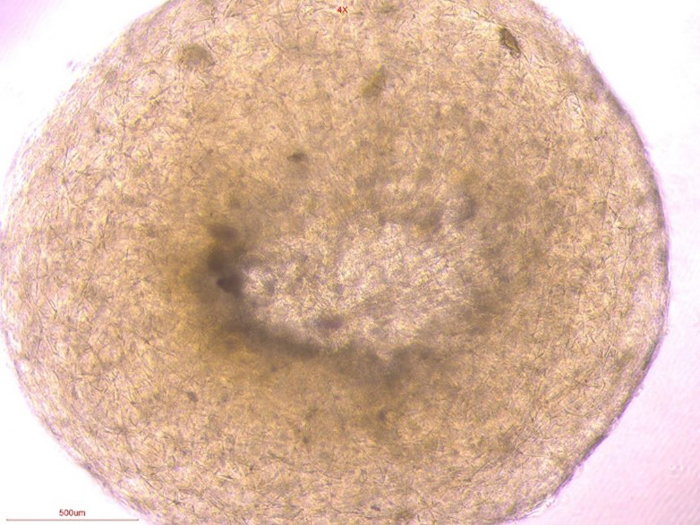
VEGF110 (Cat. No. VE0-H5212) supports iPSC derived blood vessel organoids formation with net-works.

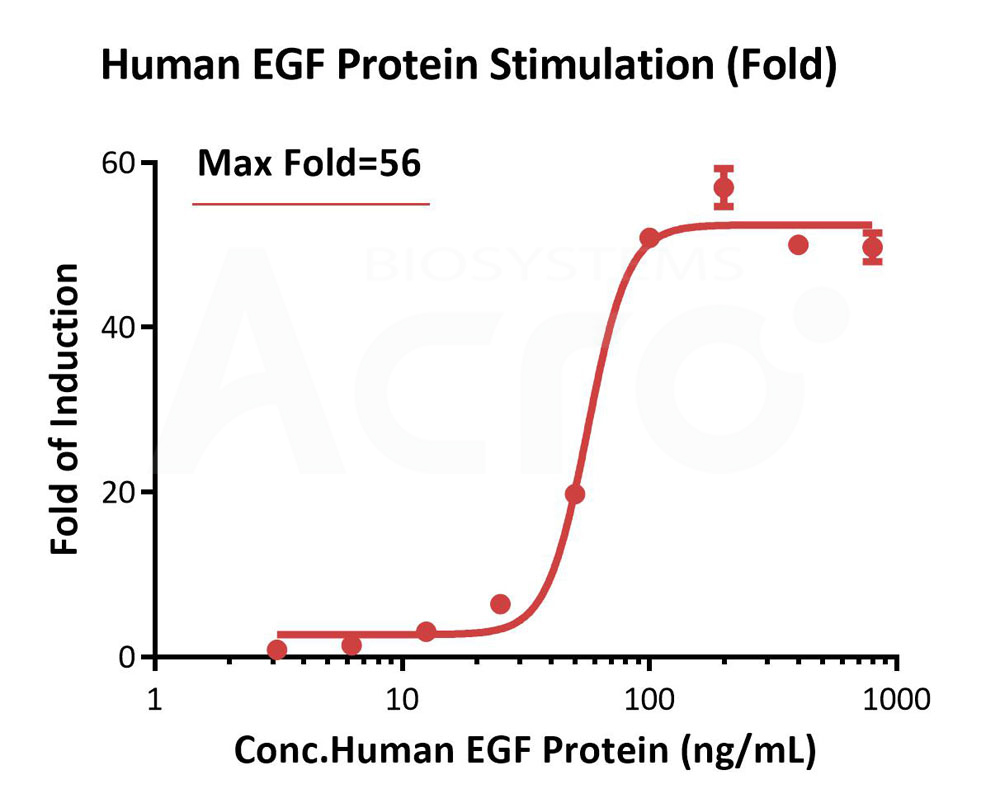
The EGFR (Luc) HEK293 Reporter Cell was stimulated with serial dilutions of Human EGF Protein, His Tag, premium grade ( Cat. No. EGF-H52H3). The max induction fold was approximately 56 (Routinely tested).
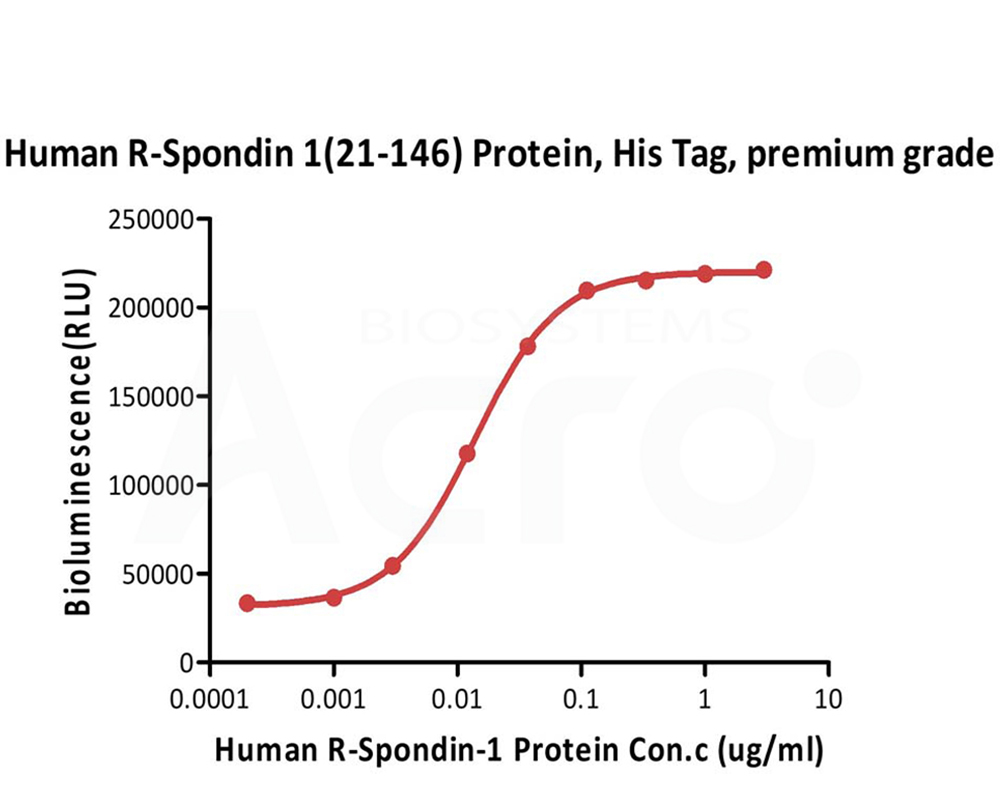
Human R-Spondin 1 (21-146), His Tag, premium grade (Cat. No. RS6-H4220) induced TCF reporter activity in HEK293 cells. The EC50 for this effect is 0.0138-0.0163 µg/mL (Routinely tested).
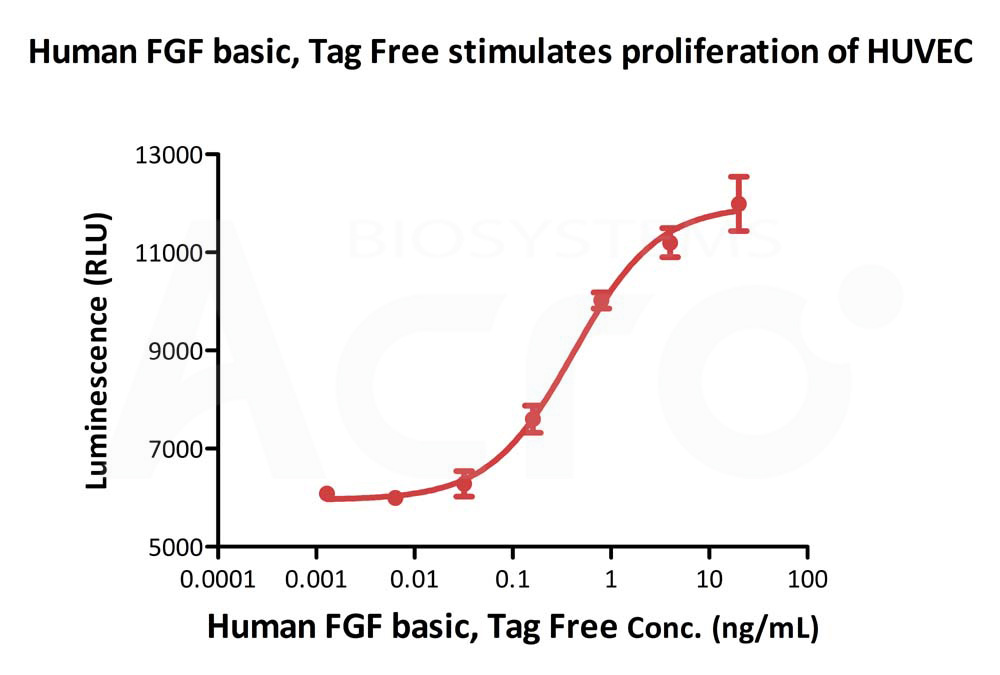
Human FGF basic (Cat. No. BFF-H4117) stimulates proliferation of HUVEC in the range of 0-20 ng/mL. The EC50 for this effect is 0.416-0.630 ng/mL (Routinely tested).
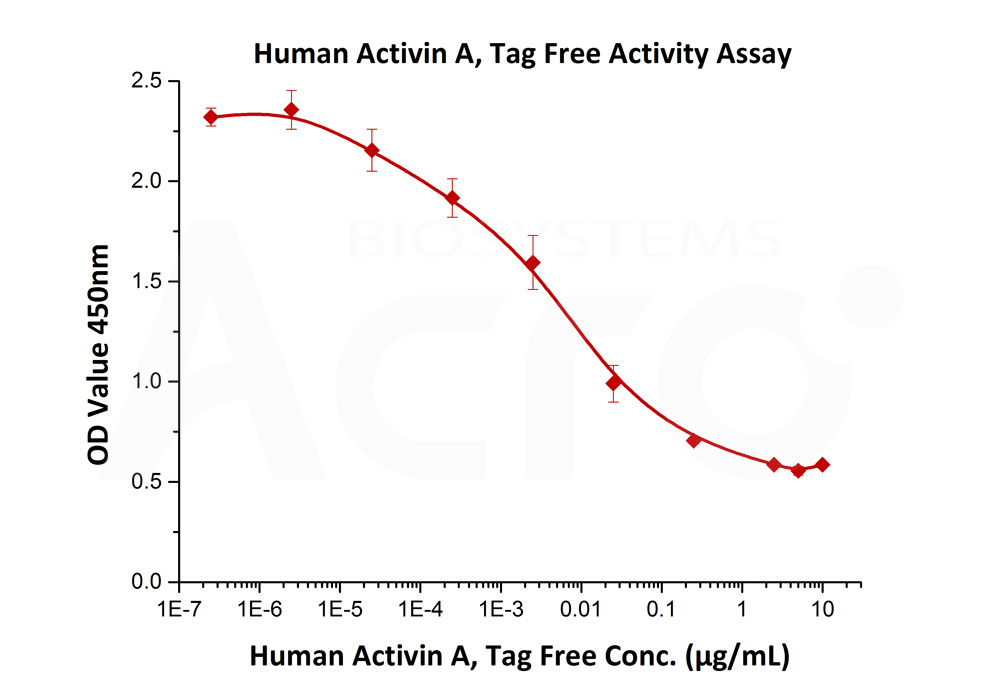
The bio-activity of Human Activin A (Cat. No. ACA-H421b) was determined by dose-dependent inhibition of the proliferation of MPC-11 cells. The EC50 for this effect is typically ≤ 9.5 ng/mL (Routinely tested).
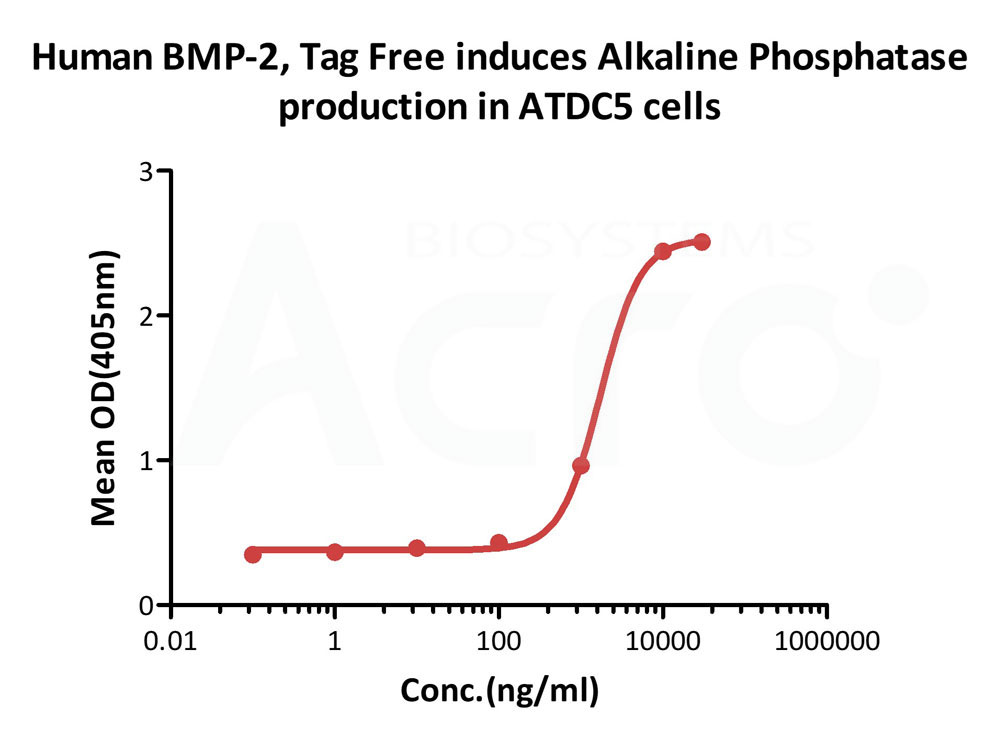
Human BMP-2, Tag Free(Cat. No. BM2-H4117) induces alkaline phosphatase production in ATDC5 cells. The EC50 for this effect is 1684-1736 ng/ml (Routinely tested).
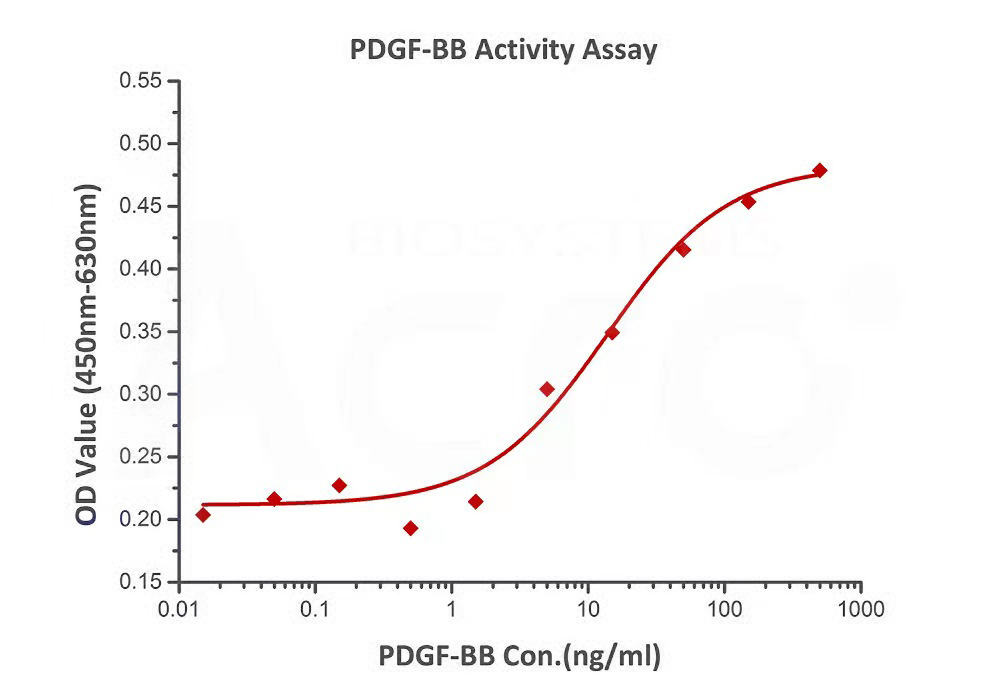
The bio-activity of Human PDGF-BB Protein (Cat. No. PDB-H4112) was determined by dose-dependent stimulation of the proliferation of mouse 3T3 cells. The ED50 was 0.5-20 ng/mL (Routinely tested).
This web search service is supported by Google Inc.
